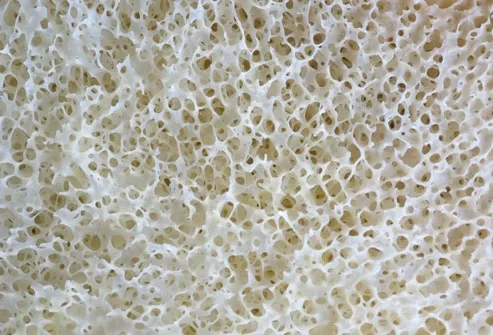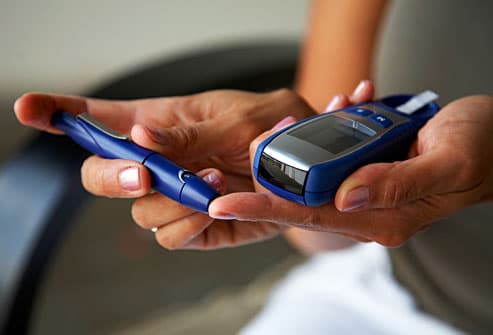दुनिया भर में फिलवक्त कोई एक अरब लोग या तो इस "सनशाइन विटामिन "की कमी से या फिर अ -अपर्याप्त आपूर्ति से ग्रस्त हैं और समस्या ने तकरीबन एक आलमी (ग्लोबल )रुख ले लिया लगता है।
इसी कमीबेशी के चलते यहां वहां कहीं बच्चों का सूखा रोग (रिकेट्स )तथा कहीं और ओस्टोमलासिया सिर उठाये हुए है।
और बात सिर्फ इतनी ही नहीं है जब जिन्न बोतल से बाहर आता है तो पूरा पैंडोरा बॉक्स ही खुल जाता है एक समस्या दूसरी को जन्म ही नहीं देती उसका पोषण भी करने लगती है इसी का नतीजा है के इस कमीबेशी के चलते मेटाबोलिक डिसऑर्डर्स (चयापचयन संबंधी शिकायतें )ही नहीं ,ऐसी बीमारियां भी उभर रहीं हैं जिन्हें आटोइम्यून डिज़ीज़ कहा जाता है और जिनमें अपना रोगप्रतिरोधी तंत्र अपने तन को ही विजातीय मान ने की भूल कर बैठता है।
स्केलेटल डिज़ीज़ीज़ ,कैंसर रोग समूह ,हृदय एवं रक्तसंचरण सम्बन्धी कार्डिवस्कुलर रोग ,किस्म -किस्म के संक्रमण ,बोध -संबंधी (प्रज्ञानात्मक दोष या कॉग्निटिव डिसऑर्डर्स ),मृत्यु-दर का बढ़ना आदि भी मुखर हैं।
उल्लेखित रोगों में ओस्टोमलासिआ मुख्य- तौर पर औरतों की ही समस्या बनती हैं कैल्सियम या फिर विटामिन -D की कमीबेशी इसकी वजह बनती है। इसमें अस्थियां मृदु होकर कमज़ोर भी पड़ने लगती हैं दुखन भी करने लगती हैं।
गत डेढ़ एक दशक में हमें जो जानकारी विटामिन -D के बारे में , 'शोध की खिड़की' से छनकर प्राप्त हुई है इससे लगातार इल्म हुआ है के हमारी सेहत की नव्ज़ इस विटामिन की कमीबेशी से जुड़ी है। ये नव्ज़ ठीक से चलेगी या हरारत करेगी ये सवाल आज अहम है। इस विटामिन की कमी हो जाने पर सिर्फ चंद गोलियां या सैचिट्स के चलन से धूप में निकलने मात्र से काम नहीं चलेगा और भी मायने हैं इसके प्रबंधन से जुड़े।
विटामिन्स क्यों ?
आवश्यक माने गए है उपयुक्त मात्रा में ये पुष्टिकर तत्व जिन्हें या तो हमारा शरीर बना नहीं पाता ,ज़ज़्ब नहीं कर पाता ठीक से या फिर अ-पर्याप्त मात्रा ही हमारा शरीर क्रिया विज्ञान इन न्यूट्रिएंट्स की तैयार कर पाता है। इसका मतलब हुआ आपकी खुराक से भी इनकी जज़्बी हो पाए आप बाहर से सम्पूरक (सम्पूरण ,सप्लीमेंट्स )भी लें ,उपयुक्त खानपान के चलते। मसलन शाकाहारी खुराक में एक लोकप्रिय कॉम्बो पालक -पनीर बना हुआ है जबकि ये एक बहुत ही वाहियात कॉम्बो है ,पनीर पालक से प्राप्त लौह तत्व को बे -असर करता है इसकी जज़्बी शरीर के द्वारा इस रूप में बा -मुश्किल ही होती है वह भी थोड़ी बहुत ही। बेहतरीन कॉम्बो है -आलू पनीर (जिसमें आलू स्किन समेत छिलका लिए हो ).
वसा में घुलन शील इस विटामिन की कमी से कैसे अधिक से अधिक बचा जा सके इसकी चर्चा अगले अंक में विस्तार से पढ़िए।
विटामिन -A ,D ,E तथा K वसा में घुलनशील हैं फैट सॉल्युबल हैं।
जैश्रीकृष्णा !
सन्दर्भ -सामिग्री :
(2)https://www.webmd.com/food-recipes/ss/slideshow-vitamin-d-overview
अंग्रेजी प्रेमियों के लिए मूल आलेख अंग्रेजी में दिया जा रहा है :
The "sunshine" vitamin is a hot topic. You may have recently found out that you are deficient or know someone who is. It's shocking for most people when they have never had a problem before and believe nothing has changed to make it a problem now. The truth is that a lot has changed, and vitamin D deficiency and insufficiency is now a global public-health problem affecting an estimated 1 billion people worldwide.
The most well-known consequences to not having enough vitamin D are rickets in children and osteomalacia in adults. These are far from the only problems associated with a vitamin D deficiency. The consequences are numerous and include skeletal diseases, metabolic disorders, cancer, cardiovascular disease, autoimmune diseases, infections, cognitive disorders, and/or mortality. The majority of our knowledge about vitamin D has been discovered over the past 15 years, and with the growing issue of deficiencies, more health connections with vitamin D levels are being made. Correcting vitamin D deficiency is not as simple as taking a pill or getting more sun. This article will teach you all that you need to know about the benefits of achieving and maintaining optimal vitamin D levels.
(2)https://www.webmd.com/food-recipes/ss/slideshow-vitamin-d-overview
(3)
इसी कमीबेशी के चलते यहां वहां कहीं बच्चों का सूखा रोग (रिकेट्स )तथा कहीं और ओस्टोमलासिया सिर उठाये हुए है।
और बात सिर्फ इतनी ही नहीं है जब जिन्न बोतल से बाहर आता है तो पूरा पैंडोरा बॉक्स ही खुल जाता है एक समस्या दूसरी को जन्म ही नहीं देती उसका पोषण भी करने लगती है इसी का नतीजा है के इस कमीबेशी के चलते मेटाबोलिक डिसऑर्डर्स (चयापचयन संबंधी शिकायतें )ही नहीं ,ऐसी बीमारियां भी उभर रहीं हैं जिन्हें आटोइम्यून डिज़ीज़ कहा जाता है और जिनमें अपना रोगप्रतिरोधी तंत्र अपने तन को ही विजातीय मान ने की भूल कर बैठता है।
स्केलेटल डिज़ीज़ीज़ ,कैंसर रोग समूह ,हृदय एवं रक्तसंचरण सम्बन्धी कार्डिवस्कुलर रोग ,किस्म -किस्म के संक्रमण ,बोध -संबंधी (प्रज्ञानात्मक दोष या कॉग्निटिव डिसऑर्डर्स ),मृत्यु-दर का बढ़ना आदि भी मुखर हैं।
उल्लेखित रोगों में ओस्टोमलासिआ मुख्य- तौर पर औरतों की ही समस्या बनती हैं कैल्सियम या फिर विटामिन -D की कमीबेशी इसकी वजह बनती है। इसमें अस्थियां मृदु होकर कमज़ोर भी पड़ने लगती हैं दुखन भी करने लगती हैं।
गत डेढ़ एक दशक में हमें जो जानकारी विटामिन -D के बारे में , 'शोध की खिड़की' से छनकर प्राप्त हुई है इससे लगातार इल्म हुआ है के हमारी सेहत की नव्ज़ इस विटामिन की कमीबेशी से जुड़ी है। ये नव्ज़ ठीक से चलेगी या हरारत करेगी ये सवाल आज अहम है। इस विटामिन की कमी हो जाने पर सिर्फ चंद गोलियां या सैचिट्स के चलन से धूप में निकलने मात्र से काम नहीं चलेगा और भी मायने हैं इसके प्रबंधन से जुड़े।
विटामिन्स क्यों ?
आवश्यक माने गए है उपयुक्त मात्रा में ये पुष्टिकर तत्व जिन्हें या तो हमारा शरीर बना नहीं पाता ,ज़ज़्ब नहीं कर पाता ठीक से या फिर अ-पर्याप्त मात्रा ही हमारा शरीर क्रिया विज्ञान इन न्यूट्रिएंट्स की तैयार कर पाता है। इसका मतलब हुआ आपकी खुराक से भी इनकी जज़्बी हो पाए आप बाहर से सम्पूरक (सम्पूरण ,सप्लीमेंट्स )भी लें ,उपयुक्त खानपान के चलते। मसलन शाकाहारी खुराक में एक लोकप्रिय कॉम्बो पालक -पनीर बना हुआ है जबकि ये एक बहुत ही वाहियात कॉम्बो है ,पनीर पालक से प्राप्त लौह तत्व को बे -असर करता है इसकी जज़्बी शरीर के द्वारा इस रूप में बा -मुश्किल ही होती है वह भी थोड़ी बहुत ही। बेहतरीन कॉम्बो है -आलू पनीर (जिसमें आलू स्किन समेत छिलका लिए हो ).
वसा में घुलन शील इस विटामिन की कमी से कैसे अधिक से अधिक बचा जा सके इसकी चर्चा अगले अंक में विस्तार से पढ़िए।
विटामिन -A ,D ,E तथा K वसा में घुलनशील हैं फैट सॉल्युबल हैं।
जैश्रीकृष्णा !
सन्दर्भ -सामिग्री :
Reference:
(1)https://www.medicinenet.com/vitamin_d_deficiency/article.htm
cause symptoms?
अंग्रेजी प्रेमियों के लिए मूल आलेख अंग्रेजी में दिया जा रहा है :
The "sunshine" vitamin is a hot topic. You may have recently found out that you are deficient or know someone who is. It's shocking for most people when they have never had a problem before and believe nothing has changed to make it a problem now. The truth is that a lot has changed, and vitamin D deficiency and insufficiency is now a global public-health problem affecting an estimated 1 billion people worldwide.
The most well-known consequences to not having enough vitamin D are rickets in children and osteomalacia in adults. These are far from the only problems associated with a vitamin D deficiency. The consequences are numerous and include skeletal diseases, metabolic disorders, cancer, cardiovascular disease, autoimmune diseases, infections, cognitive disorders, and/or mortality. The majority of our knowledge about vitamin D has been discovered over the past 15 years, and with the growing issue of deficiencies, more health connections with vitamin D levels are being made. Correcting vitamin D deficiency is not as simple as taking a pill or getting more sun. This article will teach you all that you need to know about the benefits of achieving and maintaining optimal vitamin D levels.
Vitamins are considered essential nutrients because either your body cannot make them or they are made in an inadequate amount. This means you must provide them through your diet or by taking a supplement. They are essential for your health, and when you are lacking in them, there may be health consequences and diseases.
Vitamin D is one of the four fat-soluble vitamins (A, D, E, and K). There are two forms of vitamin D, D2 and D3. Vitamin D2, also known as ergocalciferol, comes from fortified foods, plant foods, and supplements. Vitamin D3, also known as cholecalciferol, comes from fortified foods, animal foods (fatty fish, cod liver oil, eggs, and liver), supplements, and can be made internally when your skin is exposed to ultraviolet (UV) radiation from the sun. Structurally, these two are not the same.
Symptoms of Vitamin D Deficiency
Does vitamin D deficiency cause symptoms?
Yes, deficiency of vitamin D can cause bone pain and muscle weakness. However, mild vitamin D deficiency is not necessarily associated with any symptoms. Vitamin D has been referred to as the "sunlight vitamin" because it is made in our skin when we are exposed to sunlight.
What are the vitamin D requirements?
There are currently two sets of guidelines for vitamin D intake. Typically, vitamin guidelines are established by the Institute of Medicine (IOM) in the form of recommended dietary allowances (RDA) or adequate intakes (AI). The RDA is the average daily intake sufficient to meet the nutrient requirements of nearly all (97%-98%) healthy individuals. The Endocrine Society put together a task force to review the research and come up with a set of guidelines for "people who are at risk for deficiency." The two recommendations are as follows:
| 1 to 18 years old | 19 to 70 years old | 71+ years old | |
|---|---|---|---|
| IOM | 600 IU/day | 600 IU/day | 800 IU/day |
| Endocrine Society | 600-1,000 IU/day | 1,500-2,000 IU/day | 1,500-2,000 IU/day |
What does vitamin D do for your health? What are symptoms and signs of vitamin D deficiency?
By the turn of the 20th century, 90% of the children living in New York, Boston, and Leyden in the Netherlands were afflicted with rickets, a bone-deforming disease. The first observation of this disease was in the mid-1600s by Whistler and Glissen, who reported that children living in industrialized cities in Great Britain had short statureand deformities of the skeleton, especially of the lower legs. It wasn't until 1889 that the discovery that "sunbathing" was important for preventing rickets came about.
Since then, many other health benefits of vitamin D have been discovered. These include the following:
Skeletal disease: Anyone taking calcium knows that you need to take it with vitamin D. It's needed because vitamin D promotes calcium absorption in the gut and maintains blood calcium levels to enable normal mineralization of bone and prevent abnormally low blood calcium levels that can then lead to tetany. Vitamin D insufficiency leads to secondary hyperparathyroidism (overly active parathyroid glands) that causes increased bone loss, osteopenia, osteomalacia, osteoporosis, and increased fracture risk.
Fall prevention is a public-health goal for the elderly. Each year, one in three people 65 years and older experiences at least one fall, with 5.6% resulting in a fracture, and vitamin D can play a role in preventing this. There are vitamin D receptors in human muscle that have a direct effect on muscle strength. A severe vitamin D deficiency can cause myopathy, which can cause muscle weakness and pain. Vitamin D supplementation can reverse this and improve balance. Supplementing 700-1,000 IU/day of vitamin D3 has been shown to possibly reduce falls by 19%-26%. Vitamin D3 at a dosage of greater than 800 IU/day given with calcium has been shown to reduce the risk of fractures by 10%-15%.
Another advantage to correcting a vitamin D deficiency has been seen in decreasing knee and hip pain. A longitudinal population-based cohort study of 769 randomly selected older adults aged 50-80 years found that moderate vitamin D deficiency predicts the incidence or worsening of knee pain over five years and possibly hip pain over 2.4 years.
Cancer: The link between the sun and cancer is typically not seen as a positive one because of the connection with skin cancer. UV-B radiation from the sun is said to be the most important environmental risk factor for nonmelanoma skin cancer. Because the sun is the primary source of vitamin D, researchers are looking to see what role it plays in skin cancer. Some believe that enough sun exposure to keep your vitamin D levels up while protecting your skin from damage is beneficial to skin cancer survival. There has also been research to show the protective effect that vitamin D has with the development of other cancers, including colon, breast, and prostate cancer.
In 1941, U.S. pathologist Frank Apperly published geographic data that demonstrated for the first time an inverse correlation between levels of UV radiation in North America and mortality rates from cancers. This means that more exposure to UV radiation (sun) leads to fewer deaths from cancers. Since this was published, it has been confirmed that there is an association between an increased risk of dying of various internal malignancies (for example, colon, breast, ovarian, melanoma, and prostate cancer) and living far from the equator. More research needs to be done to determine if there is a definite link between supplementing with vitamin D and the prevention of cancer.
What does vitamin D do for your health? What are symptoms and signs of vitamin D deficiency? (Continued)
Cardiovascular disease:
Vitamin D deficiency is associated with an increased prevalence of hypertension, hyperlipidemia, peripheral vascular disease, coronary artery disease, myocardial infarction, heart failure, and stroke. The anti-inflammatory effects of vitamin D may be the reason for this. Research is being done to determine exactly how this works and why.
Infections: Do you tend to get more respiratory infections in the winter? Vitamin D deficiency could be the cause. Observational studies have shown an association between low vitamin D status and an increased risk of both upper and lower respiratory tract infections. The role of vitamin D in reducing the risk of hospital-acquired infections, such as pneumonia, bacteremias, urinary tract infections, and surgical site infections is also being investigated.
Depression: The association between lack of sunlight and depressive disorders was first noted 2,000 years ago. Vitamin D plays a role in regulating adrenaline, noradrenaline, and dopamine production in the brain through vitamin D receptors in the adrenal cortex, as well as protecting against the depletion of serotonin and dopamine. This is the possible link with vitamin D's role in depression. The research is new in this area, and only the associations have been shown so far. Vitamin D deficiency has been associated with an 8%-14% increase in depression. Research is also finding a relationship with low vitamin D levels and increased risk of suicide. In a study done on the Department of Defense Serum Repository personnel, researchers compared the vitamin D levels of 495 verified suicide cases versus 495 controls. They found the lowest 25(OH)D level are associated with an increased risk for suicide. Another study compared vitamin D levels in 59 suicide attempters, 17 nonsuicidal depressed patients, and 14 healthy controls. The suicide attempters had significantly lower vitamin D than depressed nonsuicidal patients and healthy controls. Research is ongoing in this area to determine if you can prevent and treat depression by correcting vitamin D deficiencies.
What does vitamin D do for your health? What are symptoms and signs of vitamin D deficiency? (Continued)
Multiple sclerosis:
Evidence continues to accumulate supporting the role of vitamin D and the prevention and treatment of multiple sclerosis (MS). It begins with the vitamin D levels in pregnant women. Numerous studies have linked the occurrence of MS with birth month. There is a high prevalence of MS in high-latitude areas. The lack of sunlight exposure appears to be a significant predictor, and research is ongoing in this area.
Tuberculosis: Individuals with tuberculosis (TB) have been shown to have lower vitamin D levels than healthy people. Supplementation has shown to improve symptoms in these individuals. Further studies are needed to determine the cause and appropriate intervention.
Reducing the risk of type 2 diabetes: Research has shown that those with blood vitamin D levels over 25 ng/mL had a 43% reduced risk of developing type 2 diabetes compared with those with levels under 14 ng/mL.
Decreasing inflammation: Many of the health benefits associated with vitamin D may come from its role in decreasing inflammation. Research has shown a decrease in levels of C-reactive protein, a marker of inflammation, with increased levels of vitamin D to just below 21 ng/mL.
Reducing risk of allergies in children and adolescents: A nationwide study of over 6,000 individuals showed that allergic sensitization was more common in those with vitamin D levels under 15 ng/mL versus those with levels 30 ng/mL or more.
Sleep apnea: There is some evidence that vitamin D deficiency may increase the risk of obstructive sleep apnea brought on by inflammatory rhinitis and/or tonsillar hypertrophy. More research needs to be done to confirm this.
Decreasing dental cavities: A review of 24 controlled clinical trials encompassing 2,827 children found a 47% reduced risk of cavities with vitamin D supplementation.
Possibly helping with erectile dysfunction (ED): It is not clear if increasing your serum vitamin D levels can help with ED. Many men diagnosed with ED are diagnosed with cardiovascular disease (CVD) within a few years. Vitamin D deficiency is linked with CVD, so if you are deficient in vitamin D, some researchers believe that treating this could reduce your risk of ED.
Reference:
(1)https://www.medicinenet.com/vitamin_d_deficiency/article.htm
cause symptoms?
(3)
Vitamin D: Wonder Pill or Overkill?
Wouldn’t it be great if one vitamin could build stronger bones and protect against diabetes, multiple sclerosis, cancer, heart disease, and depression? Or even help you lose weight? Researchers have high hopes for vitamin D -- which comes from our skin's reaction to sunlight, a few foods, and supplements. Learn the facts in the slides ahead … and see who's at risk for a "D" deficiency.
Vitamin D is critical for strong bones, from infancy into old age. It helps the body absorb calcium from food. In older adults, a daily dose of "D" and calcium helps to prevent fractures and brittle bones. Children need "D” to build strong bones and prevent rickets, a cause of bowed legs, knock knees, and weak bones. Adding the vitamin to milk in the 1930s helped to nearly eliminate rickets.
Multiple sclerosis (MS) is more common far away from the sunny equator. For years, experts suspected a link between sunlight, vitamin D levels, and this autoimmune disorder that damages the nerves. One newer clue comes from a study of a rare gene defect that leads to low levels of vitamin D – and a higher risk of MS. Despite these links, there's not enough evidence to recommend vitamin D for the prevention or treatment of MS.
Some studies have shown a link between a low vitamin D level and type 1 and type 2 diabetes . So, can boosting your vitamin D levels help ward off the disease? There's not enough proof for doctors to recommend taking this supplement to prevent diabetes. Excess body fat may play a role in type 2 diabetes and low levels of vitamin D.
Vitamin D and Weight Loss
Studies have shown that people who are obese often have low blood levels of vitamin D. Body fat traps vitamin D, making it less available to the body. It's not clear whether obesity itself causes a low vitamin D level or if it's the other way around. But one small study of dieters suggests that adding vitamin D to a calorie-restricted diet may help overweight people with low vitamin D levels lose weight more easily.





कोई टिप्पणी नहीं:
एक टिप्पणी भेजें